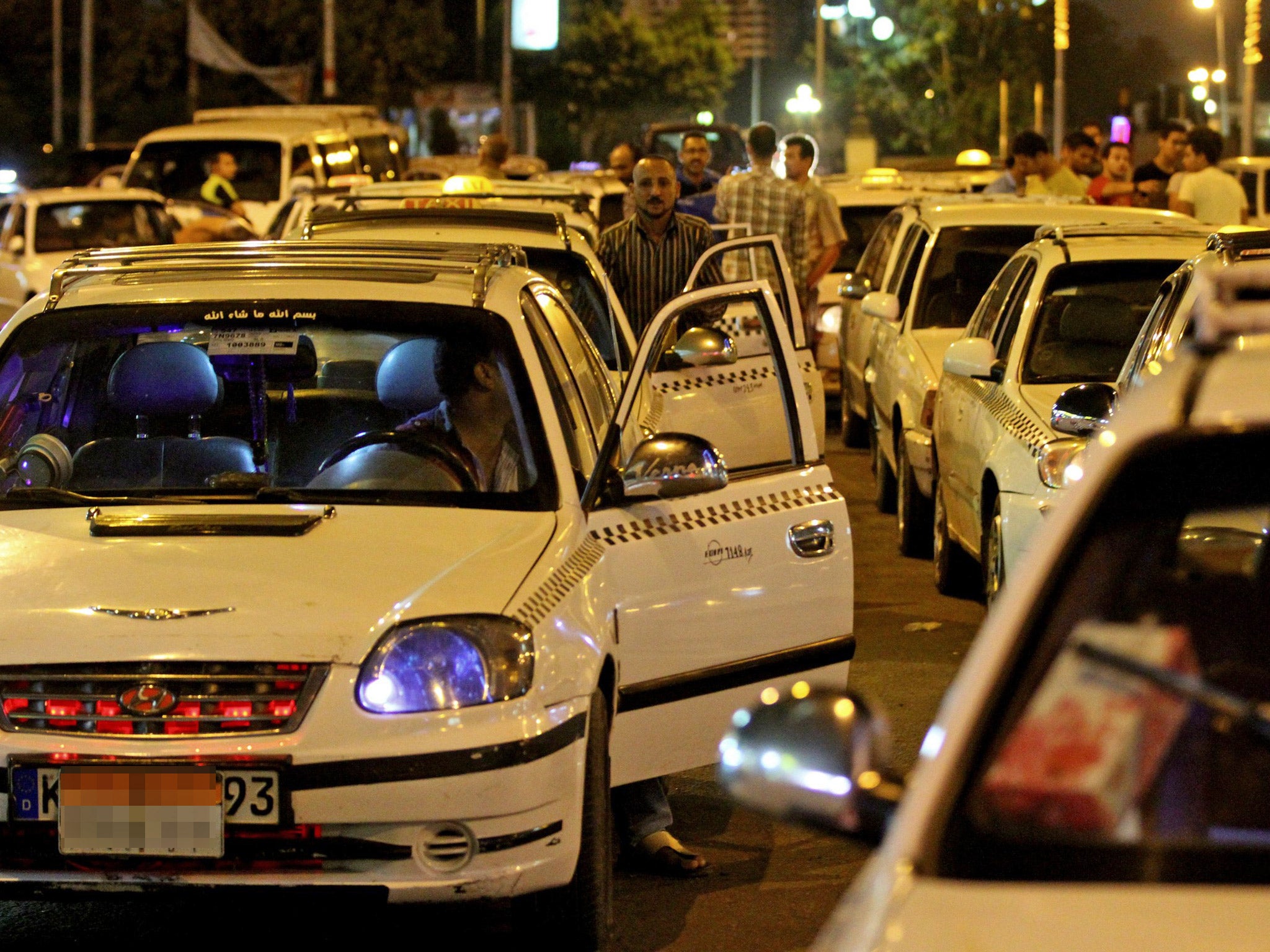Egyptian taxi drivers strike over 78 per cent fuel price rise

Your support helps us to tell the story
From reproductive rights to climate change to Big Tech, The Independent is on the ground when the story is developing. Whether it's investigating the financials of Elon Musk's pro-Trump PAC or producing our latest documentary, 'The A Word', which shines a light on the American women fighting for reproductive rights, we know how important it is to parse out the facts from the messaging.
At such a critical moment in US history, we need reporters on the ground. Your donation allows us to keep sending journalists to speak to both sides of the story.
The Independent is trusted by Americans across the entire political spectrum. And unlike many other quality news outlets, we choose not to lock Americans out of our reporting and analysis with paywalls. We believe quality journalism should be available to everyone, paid for by those who can afford it.
Your support makes all the difference.Egyptian taxi drivers went on strike yesterday to protest against an increase in fuel prices of up to 78 per cent.
The price increases came into force early on Saturday in a swift announcement made just hours earlier, following promises to cut subsidies that eat up nearly a quarter of the state budget. They also come after an increase in electricity prices that was put in effect at the start of July.
The Prime Minister, Ibrahim Mahlab, addressing a televised news conference, said energy subsidies have over the past decade cost the treasury £60bn that could have been spent on essential services.
He said it would be a “crime” if his government did not move to start lifting subsidies. He argued that 26.3 per cent of Egypt’s 86 million people live in poverty and that overall unemployment stands at 13.6 per cent, reaching above 50 per cent for those aged between 20 and 30.
“There will have to be political, social and economic reforms,” vowed Mr Mahlab. “Debts are mounting and the question we must ask ourselves is whether we want to leave this legacy for future generations.”
In some areas, the decision to raise prices spurred a rush on petrol stations, with long lines forming and many motorists frustrated.
Some drivers of Egypt’s popular microbuses raised their fares before the government announced exact increases. Mr Mahlab warned that authorities would intervene to make sure fare increases are limited to around 10 per cent. Taxi meters will also be changed to allow for higher fares, he added.
In Suez, microbus and taxi drivers refused to take on passengers until the government announces a detailed new fare structure. Some employees had to walk to work. Drivers have forced other public transport to stop working until the fares are increased.
At one Cairo petrol station on Saturday, Ebeid Ibrahim, a taxi driver and father of five, expressed his frustration. “We do not want anything from anybody, but at least the status quo should have been left as it is. Where am I supposed to get money from?” said the 56-year-old.
AP
Join our commenting forum
Join thought-provoking conversations, follow other Independent readers and see their replies
Comments